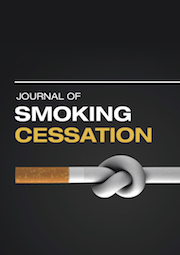Article contents
Tobacco Use Among Healthcare Workers: Impact of a Worksite Policy Change at a US Military Community Hospital
Published online by Cambridge University Press: 27 July 2015
Abstract
Introductions: Healthcare workers use less tobacco than other working populations. In contrast, US military members use more tobacco than civilians. Military healthcare workers, therefore, represent a unique group with regard to occupational factors that may influence tobacco use.
Aims/Methods: Records of workers at a military community hospital were reviewed to describe tobacco use. An anonymous survey assessed impressions of a worksite policy change that prohibited tobacco use anywhere on hospital grounds.
Results: Hospital staff included 2,074 professionals. Tobacco use was significantly associated with male sex and being a military enlisted worker. In fact, 37% of male enlisted members used tobacco; fewer than 10% of all other workers used tobacco. Among 232 survey respondents, 61% agreed with tobacco-restrictive worksite policies, but only 33% thought policies were effective. Nearly one-third of tobacco users reported decreasing use in the past year. In multivariable modelling, changing habits in response to worksite policy was the only factor significantly associated with decreased tobacco use.
Conclusions: Tobacco use among US military healthcare workers varies markedly by demographic characteristics. Male, military enlisted workers use tobacco at very high rates, paralleling the troops they serve. Implementation of tobacco-restrictive worksite policies is associated with decreased tobacco use in this population.
- Type
- Original Articles
- Information
- Creative Commons
- This is a work of the U.S. Government and is not subject to copyright protection in the United States.
- Copyright
- Copyright © The Author(s) 2015
References
- 3
- Cited by


